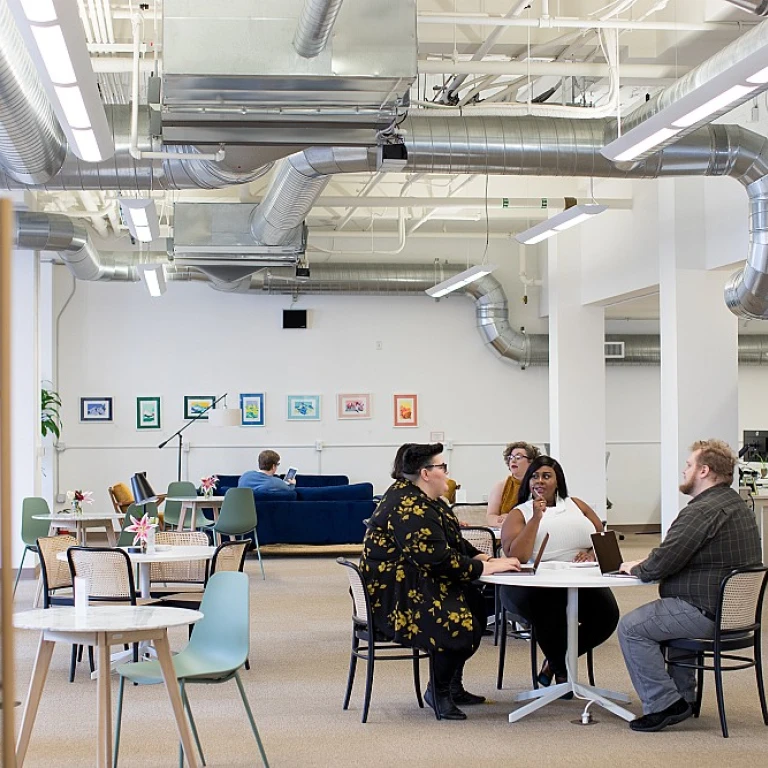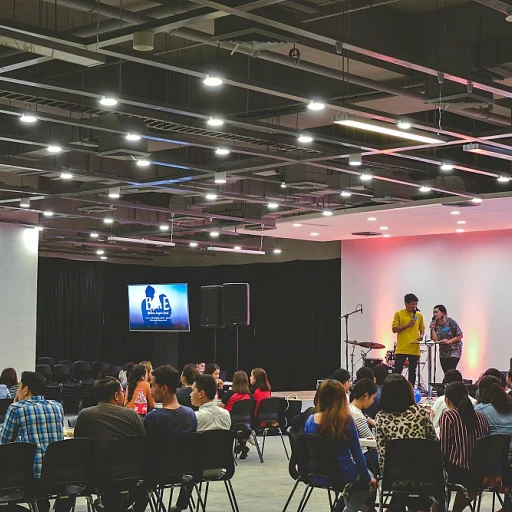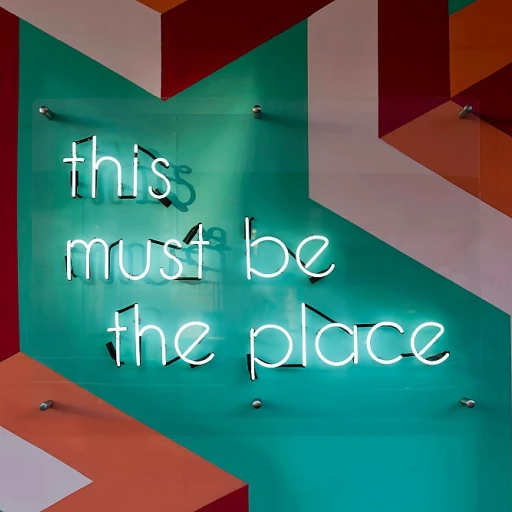The Rise of Remote Work
The New Norm of Working from Home
In recent years, the buzz around company culture has been significantly influenced by the rise of remote work. The transformation has been accelerated by technological advancements, as well as the global pandemic, reshaping how employees and employers view the work environment. The impact on workplace culture is both profound and wide-ranging, affecting everything from employee engagement to organizational communication dynamics. Remote work has not only broadened the concept of work-life balance but has also introduced a new cultural fabric within many organizations. Employees feel more empowered, with the flexibility to manage their schedules and create a work environment that suits their personal and professional needs. This change has led to increased productivity in some sectors, as team members save commuting time and enjoy a more comfortable workplace setup. However, the shift also brings challenges. Maintaining a cohesive company culture when team members are scattered across different locations requires strategic effort. For corporate leaders, fostering a sense of community and belonging among remotely working employees is paramount. This entails developing new communication modalities and engagement strategies that reinforce cultural values and build team camaraderie. Remote work also intersect with other vital cultural initiatives, including diversity and inclusion, mental health, and sustainability. How companies approach remote work can reflect their broader commitment to these initiatives, signaling to employees their stance on flexibility and support. This transformation is mirrored in various projects and collaborations across central Iowa, where efforts to enrich cultural workplace engagement are seen through different lenses, such as arts and the community impact. For further exploration of how these evolving dynamics influence the essence of corporate culture, you can read about understanding the essence of corporate culture. Here, the focus is broadened, capturing insights into how cultural growth is keeping pace with modern workplace demands.Diversity and Inclusion Initiatives
Diverse Initiatives Driving Inclusion
The current culture buzz sees an influx of diversity and inclusion programs that are reshaping the work landscape. Organizations are increasingly recognizing the value of varied perspectives, paving the way for a more inclusive workplace culture. This shift not only enhances employee engagement but also strengthens company culture by fostering an environment where different views and experiences are celebrated. Many companies are spearheading this movement by implementing specific initiatives:- Creating diversity councils that include employees from all levels to ensure every voice is heard.
- Launching mentorship programs aimed at minority groups to foster growth and development.
- Conducting ongoing education and training sessions on cultural competence.
Mental Health in the Workplace
Paving the Way for a Healthy Workplace Environment
In the evolving landscape of company culture, mental health in the workplace has emerged as a priority, resonating with the vibrant discussions around diversity, sustainability, and technology. It's no longer a mere checkbox for human resources departments but rather a pivotal component influencing employee engagement and retention. Organizations are now keenly aware that fostering a healthy workplace culture is crucial for growth and productivity. Companies, from Des Moines to central Iowa, are adopting comprehensive mental health initiatives to ensure that their employees feel supported and valued. These efforts often include stress management programs and the incorporation of wellness days, alongside access to mental health professionals. Such initiatives not only benefit the individual but also contribute to creating a cohesive community within the workplace. Here's an exploration of why prioritizing mental health is creating a buzz in the business world:- Increased Employee Engagement: When employees feel that their mental well-being is taken seriously, they are more likely to engage positively with their team and the company as a whole. This fosters a stronger sense of community and commitment.
- Reduction in Burnout: By creating a culture where mental health is openly addressed, organizations can reduce burnout. This is highly relevant in today's fast-paced work environments where stress levels can peak.
- Positive Cultural Impact: Addressing mental health challenges directly also contributes to a healthier workplace culture where employees are empowered. This openness fosters trust and builds a resilient work environment.
Sustainability and Corporate Responsibility
Embracing Environmental Responsibility in the Workplace
In today's corporate climate, sustainability and corporate responsibility are at the forefront of many companies' missions. Businesses are increasingly aware that their operations impact not only their immediate environment but also the global community at large. As the discussion on sustainability gains momentum, companies are finding that cultural shifts within the organization can significantly influence their sustainability efforts and overall workplace culture. One clear trend is the move towards reducing the ecological footprint, something particularly evident within offices aiming to create a green workplace environment. Employees feel more engaged and valued when their company shows a commitment to reducing waste, conserving water, and promoting energy-efficient practices. This buzz around sustainability aligns with broader cultural movements seen in places like Central Iowa, where community-driven initiatives are thriving. Moreover, the integration of sustainable practices into the workplace culture often overlaps with the rise of remote work and enhanced technology usage, as noted earlier. By implementing digital solutions and supporting remote work, companies reduce the need for large physical office spaces, consequently decreasing environmental impact. This movement is not just about reducing costs but is a firm statement on how organizations view their role in global conservation efforts. Companies striving to align with these cultural shifts benefit from establishing clear sustainability goals and involving employees in the initiative. From hosting educational workshops to engaging in local community clean-up events, fostering an environmentally friendly mindset can lead employees to a more profound engagement and satisfaction with their work. Ultimately, the quest for sustainability is not just about compliance or meeting consumer expectations. It is about redefining company culture in a way that prioritizes long-term growth and responsibility. By instilling these values, companies are better able to navigate the culture buzz, ultimately leading to a more robust and dynamic workplace culture.The Role of Technology in Shaping Culture
The Digital Transformation of Workplace Culture
In today's rapidly evolving corporate landscape, technology plays a pivotal role in shaping workplace culture. As companies navigate the current culture buzz, the integration of digital tools is not just a trend but a necessity. This transformation is evident in how teams communicate, collaborate, and engage with their work.
With the rise of remote work, technology has become the backbone of employee connectivity. Platforms like Zoom and Slack have replaced traditional water cooler conversations, fostering a sense of community even from afar. Employees feel more connected and engaged when they can seamlessly interact with their colleagues, regardless of their physical location.
Enhancing Employee Engagement Through Technology
Technology also empowers employees by providing them with tools to enhance productivity and creativity. For instance, project management software allows teams to track progress and manage tasks efficiently. This not only boosts employee engagement but also contributes to the overall growth of the company.
Moreover, the integration of technology in workplace culture supports diversity and inclusion initiatives. By offering flexible work arrangements and accessible platforms, companies create an inclusive environment where everyone can thrive.
Challenges and Opportunities in the Digital Age
However, the digital transformation of workplace culture is not without its challenges. Privacy concerns and data security are at the forefront of discussions as companies strive to protect sensitive information. It's crucial for organizations to establish clear policies and guidelines to ensure a safe and secure digital environment.
Despite these challenges, the opportunities presented by technology are immense. Companies that embrace digital transformation can enhance their cultural impact, fostering a dynamic and innovative work environment. This shift not only benefits the organization but also enriches the lives of employees, offering them the tools to succeed in a digital world.
As the buzz around technology in corporate culture continues to grow, it's essential for companies to remain adaptable and forward-thinking. By leveraging technology, organizations can create a vibrant workplace culture that supports both individual and collective success.
Leadership Styles and Cultural Impact
Impactful Leadership Styles Embracing Culture
In today's corporate environment, leadership plays a crucial role in molding company culture. Leaders are key influencers, guiding employees and shaping perceptions. Their leadership style can significantly impact how the team functions and feels. Empowering EmployeesAn empowering leadership style that fosters autonomy and encourages open communication can lead to heightened employee engagement. This is even more critical as businesses navigate remote work scenarios, where the dynamics of team collaboration have shifted significantly. Cultivating a Positive Workplace Culture
Leaders who prioritize employees' well-being, promote diversity and inclusion initiatives, and address mental health issues create a more positive work environment. Employees who feel supported and valued contribute to a thriving workplace culture that benefits the company as a whole. Leveraging Technology
Modern leaders are increasingly turning to technology to foster a connected company culture. Tools that enable virtual collaboration, like video conferencing and collaborative platforms, can help bridge the gap in remote work settings. While fostering virtual connections, leaders should be mindful of maintaining privacy and ensuring data protection. Leadership and Sustainability
Today's leaders are also expected to champion sustainability efforts and corporate responsibility. A commitment to environmental issues and community welfare is becoming a vital part of leadership and company narratives, driving a cultural shift towards more conscious capitalism. Incorporating these elements into leadership practices not only aligns with the current cultural buzz but also directly impacts the overall company culture. Leaders must remain adaptable and culturally aware, continually aligning their strategies with the evolving needs of their teams. The ability to do so effectively sets the stage for both individual growth and organizational success.








